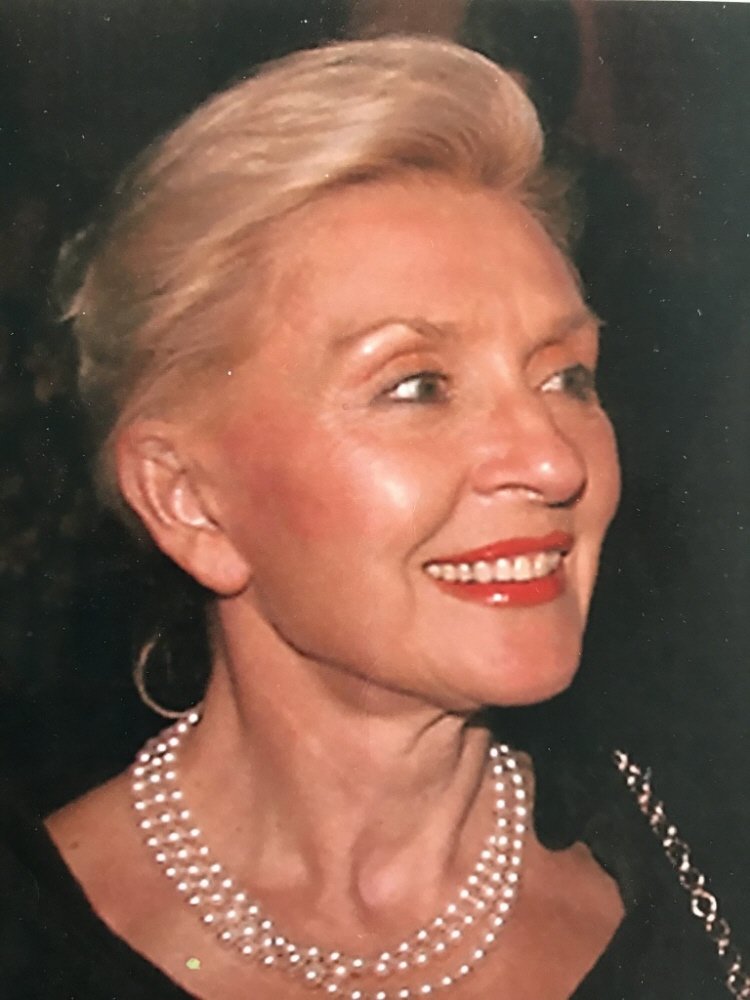
Share Your Memory of
Kaziz
Obituary of Kaziz Klimczak Sperling
Please share a memory of Kaziz to include in a keepsake book for family and friends.
Kazimeria Klimczak (Sperling) succumbed on October 3, 2018 to the ravages of Alzheimers disease after a 15-year battle. For the past fifteen years, Kazia has led a diminished life due to her disease, but her history is remarkable and worth noting. Born in 1934 to land-owning peasants in eastern Poland, in 1939 she and her family were forcibly removed from their farm when the Soviets began the systematic deportation of more than 1.7 million Polish people to Siberia.
It was the start of a three-month journey, much of it on foot through bleak countryside and the rest via more frightening cattle-car train rides. It would end at Gulag 109, a forced labor camp in the Siberian forest. At night, the refugees were crowded into barracks that they were forced to build themselves from the huge trees surrounding the camp. All food was rationed and there was never enough to eat.
After a year and half, because their Father agreed to accept conscriptment into the Soviet army, the rest of the family was allowed to leave the camp. They travelled by train and bus through Kazakhstan and Uzbekistan, and then by ship across the Caspian Sea to Iran, where the British army had provided a tent city by the shore for the war refugees. To avoid deportation to Soviet Russia, they got on buses and rode through the desert and then across the forbidding mountains of Afghanistan. They finally arrived in Karachi, the largest city in Pakistan, where they spent three weeks resting before moving on to India and then on to Africa.
The refugees settled outside Masindi, a city in northwest Uganda far from any towns or villages. They had very meager supplies, living only in tents, but it was 1942 and the Second World War was in full swing. Uganda was the only country that would take Polish war refugees, owing to a general fear elsewhere of Soviet reprisals.
When WWII ended, returning to Poland was not an option as the country had been handed over to the Soviets as a bargaining chip by the Western Allies. France agreed to take them, and the group arrived in Marseille on Kazias 14th birthday. Soon Kazia was placed in a Polish high school outside of Paris, where she completed her high school education in three years. Now 17, she was "discovered" by scouts looking for models and was eventually selected as Miss Poland in Exile for the 1954 Miss Europe Beauty Pageant, held in Paris that year. Kazia was chosen "Second Dauphine" to Miss France. But Kazia was not a natural as a model - she abhorred catwalks and wearing skimpy bathing suits. So in 1957 she decided to join her mother in America, where she had emigrated three years earlier.
Shortly thereafter Kazia married and had three children. Soon she was searching for new opportunities-- many years of roaming the world had left her with an ambition she couldnt shake. She divorced her first husband and two years later she remarried and moved with her new husband to NYC. She took art classes and became a respectable painter, but at the same time become fascinated by the financial markets, and commodities trading in particular. A year later, using cash from her hard earned savings, she bought a seat on the Coffee, Sugar & Cocoa Exchange.
Kazia was the first woman trader in the history of organized commodity exchanges, which date back to 1848. At first she struggled to be accepted by the boys club on the trading floor, but eventually her toughness, good humor and persistence won out. Within two years she was successful enough to buy additional memberships at the gold and energy exchanges, both of which shared a lower Manhattan trading floor with Coffee, Sugar & Cocoa. She was now one of the rare few traders that wore a gold badge signifying membership in all of the New York commodity exchanges.
By 1989 she decided to stop trading. She wanted to give back to the country of her birth, so she decided to return to Poland following reformist Soviet Premier Gorbachevs initiatives. Acting as a consultant to the new capitalist-minded Polish government, she helped design the infrastructure that would be required for a free-market economy to take hold in the country, eventually leading the development of a commodity exchange and a clearinghouse to settle trades.
Kazia is survived by her three daughters; Lucia Zachowski, of Darien, Christina Gelwicks of Katonah and Julia Shaw of Palo Alto. Donations in her memory can be made to the Kazia Klimczak Scholarship fund at the Darien Community Association or the Alzheimers Association.
Funeral Home:
Edward Lawrence Funeral Home
2119 Post Road
Darien, CT
USA 06820
To send flowers to the family or plant a tree in memory of Kaziz Sperling, please visit Tribute Store
Services for Kaziz Sperling
Visit the Tribute Store
Proudly serving Darien & surrounding communities

